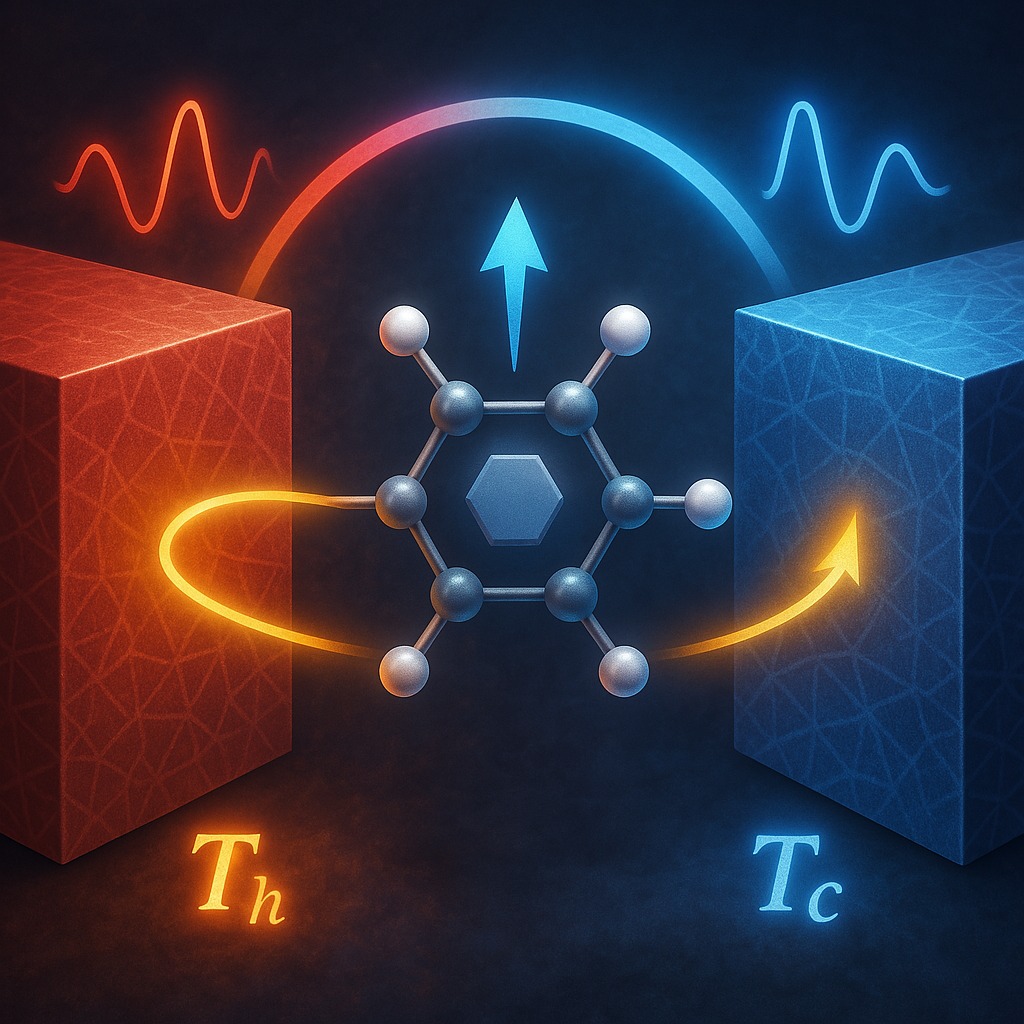Enhancing thermoelectric output in a molecular heat engine utilizing Yu-Shiba-Rusinov bound states
imcn | Louvain-la-Neuve

Particle exchange heat engines are a novel class of cyclic heat engines that are all-electrical, contain no moving parts and can therefore be scaled down to nanometer size. At the center of their operation is the manipulation of a particle flow between a hot and a cold reservoir through energy filtering mechanisms, where their efficiency depends primarily on the sharpness of the energy filter. In this study, we investigate the efficiency enhancement of such engines by utilizing ultra-sharp transmission resonances formed by magnetic impurities interacting with superconductors, known as Yu-Shiba-Rusinov bound states. To this end, we couple a neutral and stable diradical molecule to superconducting break-junction electrodes, and study its thermoelectric properties at ultra-low temperatures. By driving the molecular heat engine through a phase transition from a Kondo state into the Yu-Shiba-Rusinov regime, we observe a five fold increase in the thermoelectric power factor. This observation could pave the way for practical applications such as cryogenic waste heat recovery and efficient spot-cooling for future quantum computing architectures.
Authors: Serhii Volosheniuk, Damian Bouwmeester, David Vogel, Christina Wegeberg, Chunwei Hsu, Marcel Mayor, Herre S. J. van der Zant & Pascal Gehring